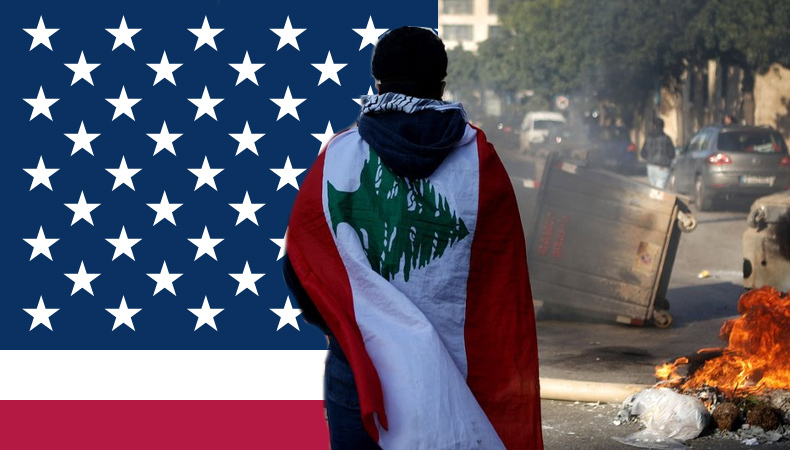The US Needs To Give High Priority To Lebanon

Lebanon’s politicians caused a financial crisis that has destroyed the country’s economy and put more than three-quarters of its people in poverty. Public services are getting worse, electricity is only on for less than four hours a day, schools are closing, and the once-thriving healthcare system is being put under stress as doctors and nurses leave for better jobs abroad.
Also read – World Bank approves $300 million for poor people in Lebanon
The number of thefts, shootings, bank robberies, hostage-taking, and smuggling is going up, putting public safety at risk. At the same time, the ability of security agencies to keep the peace is going down. Social implosion is coming, and there are important risks that it will spread. Also, Lebanon’s leaders haven’t been able to stop the freefall, which has been going on for almost four years, and they are still very divided about how to move forward and what to do about the lack of a president.
U.S. leadership has been active in providing short-term humanitarian aid, but U.S. interests in Lebanon’s stability, given its strategic location on the Eastern Mediterranean, will be hurt if the problems that will determine the country’s future aren’t dealt with in a more long-term way. These problems range from the catastrophic humanitarian and security breakdown to the destabilizing effects of rising social and economic tensions and an unsustainable refugee crisis.
The U.S. Congress has asked the Biden administration to be more firm with Lebanon’s leaders and force them to take action to break the political deadlock. In a letter to Secretary of State Antony Blinken, Reps. Gregory Meeks (D-NY) and Mike McCaul (R-TX) recently emphasised the need to “use all authorities,” including targeted sanctions against those who are standing in the way of progress, to show the political class how important it is to choose a president and make long-overdue changes.
The administration is now setting limits on what kind of government it can work with, insisting on a clean, capable, and independent candidate who can get political agreement on reform. The International Monetary Fund (IMF) has repeatedly warned that there will be a “never-ending” crisis if the government doesn’t move faster to meet the conditions that will unlock a $3 billion bailout. This is true even though Lebanon is facing dollarization that is out of control, deteriorating public services, and dwindling central bank reserves that will wipe out any remaining bank deposits. In order to do this, it is important to choose a president who can quickly put together a government.
At the same time, Lebanon is in danger of falling apart completely, and national institutions have been badly damaged. Increasing administrative decentralization is one way forward that Lebanon’s leaders should think about as part of any reform plan. If decentralization is done right, that is, if it is paired with fiscal decentralization that gives (elected) local bodies budgets to go along with their powers, it could boost local development and citizen participation, giving the central government an alternative to its inaction and corruption. At the very least, it would make it possible for local governments to provide basic services to their communities, such as solar-powered electricity, water treatment and sanitation services, education and health services, and more openness.
Still, decentralization should go hand in hand with reforming the judiciary, which is in disarray, has become too political, and doesn’t care much about accountability. The judiciary has lost its integrity and independence because it can’t do its job well and doesn’t have clear standards and procedures. A strong, independent judiciary is especially important for a frustrated public that is still looking for justice for the terrible port explosion that killed 218 people and destroyed the capital city, but for which the people responsible have not been punished.
Lastly, Lebanon has the most refugees per person, with about 30% of the population being refugees. These refugees are not only doing badly in poor, overcrowded camps, but they have also made it impossible for Lebanon to keep its public services running. Due to the general poverty of the population, relationships within communities are getting worse, and violence between host and refugee communities is on the rise. Lebanon’s government needs to know that the United States understands the economic, social, and political effects of the Syrian refugee crisis. It also needs to say that it will work with the government of Lebanon to make sure that the human rights of refugees are respected and to help the rest of the world find local and global solutions to help Lebanon deal with the stresses caused by the influx of refugees.
Also read – Brother of Lebanon’s central bank president misses hearing on fraud
Institutional decay and inaction are creating a void filled by rackets, gangs, political parties, and other non-state actors who can provide local support and safety at the state’s expense. Hezbollah, which Iran backs, is best able to provide for its supporters. Now, more than ever, the U.S. should use its power, including pressure tactics, to show that it wants good governance and accountability. It should also make sure that Lebanon’s corrupt politicians, who are to blame for the country’s decline, don’t profit from the status quo and work to elect their next president, who has the respectability and gravitas to get agreement on reform and isn’t beholden to any of Lebanon’s bad foreign patrons.




